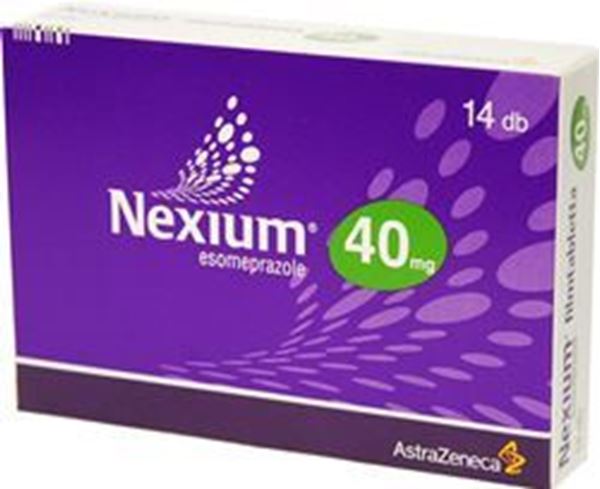
Overview
Peptic ulcers are open sores which develop on the inside lining of the stomach as well as the upper portion of your small intestine. The most frequent symptom of a peptic ulcer is stomach pain.
Peptic ulcers include:
- Gastric ulcers. These occur on the inside of the stomach
- Duodenal ulcers. These occur on the inside of the upper portion of the small intestine.
The most common causes of peptic ulcers are long-term use of aspirin and nonsteroidal anti-inflammatory drugs (NSAIDs), and infection with the bacterium H. pylori. Stress and spicy foods don’t cause peptic ulcers, they can however, make your symptoms worse.
Symptoms
- Heartburn
- Feeling of fullness, bloating, or belching
- Burning stomach pain
- Nausea
- Fatty food intolerance
Burning stomach pain is the most common symptom of peptic ulcers. Stomach acid or having an empty stomach makes the pain worse. The pain can often be relieved by eating specific foods that buffer stomach acid or by taking an acid-reducing medication, but it may come back. The pain might be worse between meals and at night.
Nearly three quarters of those who have peptic ulcers don’t have symptoms.
Less often, ulcers might cause severe signs or symptoms like:
- Unexplained weight loss
- Dark blood in stools, or stools that are black and tarry
- Feeling faint
- Vomiting blood which may appear red or black
- Appetite changes
- Nausea or vomiting
- Feeling faint
Causes
Peptic ulcers happen when acid within the digestive tract eats away at the inner surface of the small intestine or stomach. The acid creates a painful open sore that could bleed.
Your digestive tract is coated with a layer of mucous that usually protects against acid. If the amount of mucus is decreased or the amount of acid is increased, you could develop an ulcer.
The common causes of ulcers include:
- Bacterium. Helicobacter pylori bacteria (H. pylori bacteria) commonly live in the mucous layer covering and protecting the stomach lining and small intestine. Usually the H. pylori bacterium doesn’t cause problems. It can, however, cause inflammation of the stomach’s inner layer, producing an ulcer. It is unclear how H. pylori infection spreads. It might be transmitted from close contact with people. It may also be contracted through food and water.
- Regular use of certain pain relievers. If you take aspirin, or other NSAIDs it can irritate or inflame the lining of your small intestine and stomach. These medications include ibuprofen, naproxen sodium, ketoprofen, as well as others. They don’t include acetaminophen. Peptic ulcers are more common in older adults who are taking these medications frequently or those who take these medications for osteoarthritis.
- Other medications. Taking certain medications in combinations with NSAIDs, like anticoagulants, steroids, SSRIs, risedronate (Actonel), alendronate (Foxamax), low-dose aspirin, and steroids, can greatly increase the chances of developing ulcers.
Diagnosis
To detect ulcers, your doctor may first take a medical history as well as perform a physical exam. You may then need to undergo diagnostic tests, like:
- Laboratory tests for H. pylori. Your doctor might recommend tests which determine whether the bacterium H. pylori is present in your body or not. They will use blood, stool, or breath tests to look H. pylori. The breath test will be the most accurate, whereas blood tests are more inaccurate and shouldn’t be used routinely.
For the breath test you will eat or drink something containing radioactive carbon. Then H. pylori will break the substance down in your stomach. Later, you will blow into a bag which gets immediately sealed. If you’re infected with H. pylori, your breath sample will have the radioactive carbon in the form of carbon dioxide.
If you’ve taken an antacid prior to testing for H. pylori ensure to tell your doctor. Depending on which test is being used, you might need to stop it for a period of time. Antacids can lead to false negative results. - Endoscopy. Your doctor might use a scope to take a look at your upper digestive system. During endoscopy, your doctor will pass a hollow tube equipped with a lens down the throat through the esophagus to look at the stomach and small intestine. There, your doctor will look for ulcers.
If your doctor sees an ulcer, they may take small tissue samples to be examined in a lab. Biopsies can also identify if H. pylori is in the stomach lining.
The doctor will be more likely to recommend an endoscopy if you’re older, have signs of bleeding, or have experienced recent weight loss or difficulty swallowing and eating. If the endoscopy shows a stomach ulcer, a follow-up endoscopy will be performed after treatment to show that it’s healed, even if your symptoms improve. - Upper gastrointestinal series. This is sometimes called a barium swallow. It refers to a series of X-rays of your upper digestive system which creates images of your esophagus, small intestine, and stomach. During the X-ray you will swallow a liquid containing barium that coats your digestive tract, making ulcers more visible.
Treatment

Treatment for peptic ulcers will depend on the cause. Generally treatment involves killing the H. pylori bacterium if it is present, reducing or eliminating use of NSAIDs if possible, and helping to heal your ulcer with ulcer medication.
Ulcer medications can include:
- Antibiotic medications to kill H. pylori. If H. pylori is found in the digestive tract, your doctor will recommend antibiotics to kill the bacterium. These antibiotics could include metronidazole (Flagyl), amoxicillin (Amoxil), tinidazole (Tindamax), clarithromycin (Biaxin), levofloxacin (Levaquin), and tetracycline (Tetracycline HCL). Which antibiotics get used will be decided by where you live and current antibiotic resistance rates. You will probably need to take antibiotics for two weeks along with other medications meant to reduce stomach acid. These will include a proton pump inhibitor and possibly bismuth subsalicylate.
- Ulcer medications that promote healing and block acid production. Proton pump inhibitors (PPIs) block the action of the parts of the cells that produce acid to decrease stomach acid. These drugs include the over the counter and prescription versions of: lansoprazole (Prevacid), esomeprazole (Nexium), omeprazole (Prilosec), pantoprazole (Protonix), and rabeprazole (Aciphex).
Using PPIs for long periods of time, particularly at high doses, can increase your chances of fracturing your spine, wrist, or hip. A calcium supplement could reduce this risk. - Ulcer medications to reduce acid production. Acid blockers (H-2 blockers) lower the quantity of stomach acid released into the digestive tract, which relieves ulcer pain and helps heal.
Available as over-the-counter or prescription medications, acid blockers include the medications cimetidine (Tagament HB), famotidine (Pepcid), and nizatidine (Axid AR). - Antacids that neutralize stomach acid. Your doctor could include an antacid in your treatment plan. Antacids work to neutralize existing stomach acid and can provide quick pain relief. Side effects may include diarrhea or constipation, depending on what the main ingredients are.
Antacids can provide symptom relief, but in general are not used to heal ulcers. - Medications that protect the stomach and small intestine lining. In some cases, your doctor could choose to prescribe medications called cytoprotective agents. These ulcer medications help protect the tissues that line the stomach and small intestine.
Options include misoprostol (Cytotec) and sucralfate (Carafate).
Follow-up after initial treatment
Usually, treatment for peptic ulcers is successful which leads to the ulcer healing. If your symptoms are severe or if they continue despite treatment, your doctor will likely recommend endoscopy to rule out other possible causes of your symptoms.
If an ulcer is detected during endoscopy, your doctor may recommend another one after your treatment to ensure your ulcer is properly healed.
Ulcers that fail to heal
Refractory ulcers is the name for Peptic ulcers that don’t heal with treatment. There are a variety of reasons why an ulcer might not heal, including:
- Regular use of tobacco
- Not taking medication according to instructions
- The fact that some H. pylori is resistant to antibiotics
- Regular use of pain relievers that increase the risk of ulcers
Less often, refractory ulcers may be a result of:
- An infection other than H. pylori
- Stomach cancer
- Extreme overproduction of stomach acid like what occurs in Zollinger-Ellison syndrome
- Other diseases that can cause sores similar to ulcers such as Crohn’s disease
Refractory ulcer treatment usually involves eliminating the factors interfering with healing as well as using different antibiotics.
If you have serious complications from an ulcer such as a perforation or acute bleeding, surgical intervention may be necessary. However, because of the many effective medications available now, surgery is needed less often than previously.


